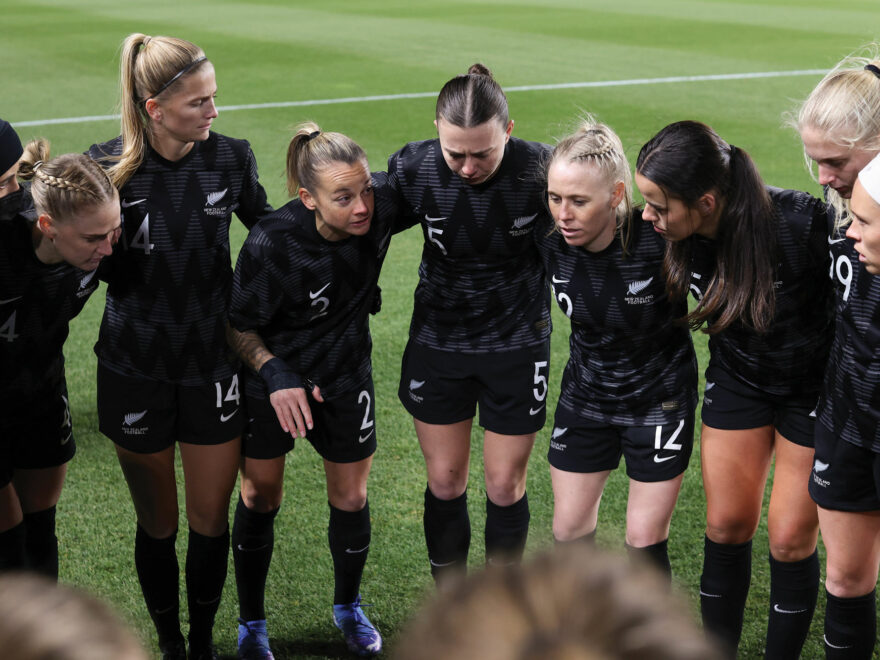are racing the clock.
In just over a year’s time, New Zealand will co-host the biggest female sporting event on the planet.
The 2023 FIFA Women’s World Cup is a unique chance, that we might never see
again. But will the team be ready to peak?
That is the biggest question for coach Jitka Klimkova, who has only been in the role for seven months.
The tournament is a monster, with 64 matches, including 29 games in New Zealand. It should be a kaleidoscope of colour, noise and drama, with thousands of travelling fans expected (borders permitting).
The event gets bigger with each iteration, with 1.2 billion television viewers worldwide
tuning into the 2019 tournament in France and there are bigger targets for next year.
But the most important element, from a domestic point of view, is the performance of the home side.
Football fans will embrace every second of the tournament, but the New Zealand side need to take the chance to turn heads and become household names across the country.
Pop quiz – how many Ferns’ players can you name?
For the average Kiwi the answer would be hardly any, or maybe even none.
That’s a shame, but there are reasons.
Firstly, the Ferns don’t often play at home, with only one of their last 61 games on New Zealand soil. Covid hasn’t helped, but even before the pandemic there were limited opportunities, with just five games here between July 2012 and March 2020.
The other aspect is a relative lack of success. The Ferns have qualified for the last four World Cups (2007, 2011, 2015 and 2019) but have yet to win a match at that level.
There have been some credible draws but overall the team hasn’t fulfilled their potential when it matters most. That has hurt their profile, leaving them unable to capture the imagination and convert new fans.
The worst example was 2019. With an extremely experienced squad – including eleven players with 70 caps or more (and seven centurions) – and an extensive buildup, hopes were high but their performances were extremely disappointing.
Then ranked World No 19, they lost all three group games, including a defeat to 46th ranked Cameroon and the only time they got on the scoresheet was from an opposition own goal.
But there is optimism for next year, mainly due to the impact of Klimkova.
The Czech native has encouraged a more dynamic, aggressive style of play, with positive recent performances against Olympic champions Canada and South Korea.
Klimkova has also increased the internal competition, with a bunch of new faces, after many years of the squad feeling like a closed shop.
That influx has included players from the 2018 Under-17 World Cup team – who claimed an unlikely and memorable bronze – and others who had been overlooked in the past.
“There is a competitive mindset in our team and that is what I expect from everyone,” said Klimkova before her first match last October. “It doesn’t matter if you are young or more experienced; that is the standard that we want to set.”
“It’s not about age, it’s not about experience, it’s about the team that is going to do the best when they are on the field.”
As host nation, the Ferns will be seeded at the World Cup, which means they will avoid any of the top seven ranked teams in pool play and could have at least one ‘minnow’ in their group.
With huge crowds expected for their group games in Auckland (July 20), Wellington (July 25) and Dunedin (July 30), they will never have a better chance to make an impact. It’s up to them to take it.
Michael Burgess
Sports Writer

